How A Singapore Hotel
Made Sustainability The Focal Point Of Their Reopening
Grand Hyatt Singapore’s commitment to sustainability was renewed from the ground up when the hotel closed two years for a full renovation.
17 June 2025
Share this exclusive content from Saladplate
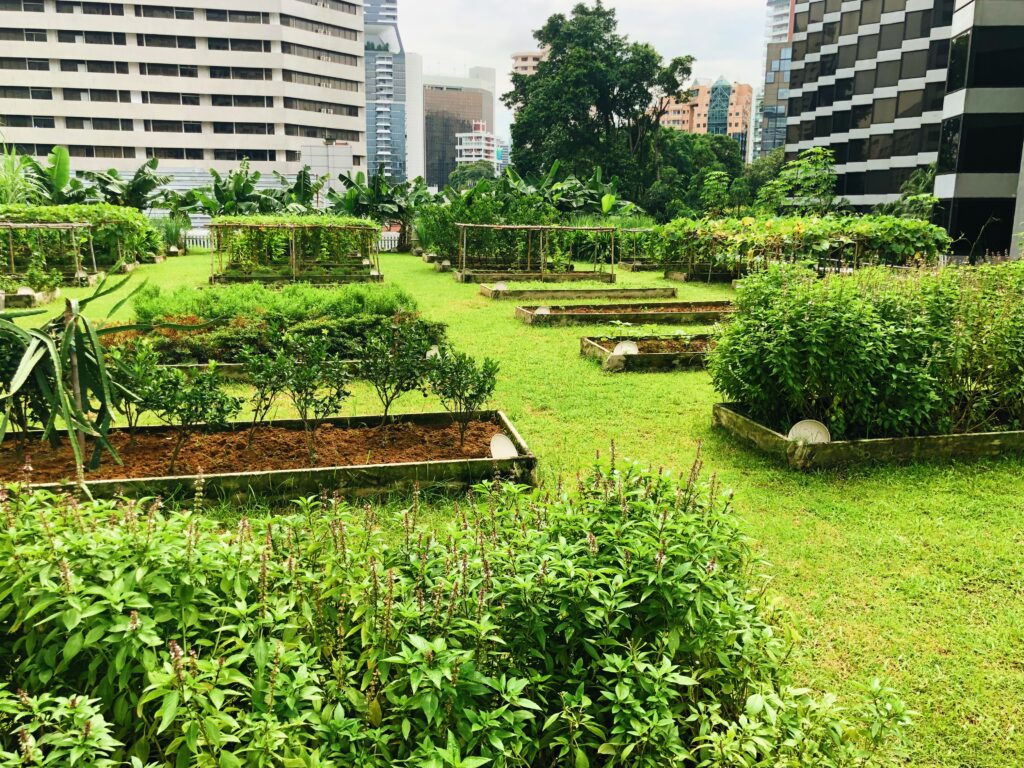
The rooftop garden in the heart of Singapore’s Orchard Road | Photo credit: Grand Hyatt Singapore
Considered a hotel stalwart on Singapore’s iconic Orchard Road, it was met with general surprise when Grand Hyatt Singapore announced they would be closing their doors for a full renovation in September 2022. When they announced reopening in August 2024, it was clear that their commitment to sustainability was designed to go beyond the standard messaging.
Instead, spearheaded by director of engineering Clyric Ng, the hotel made several back-of-house changes that focus on carbon offsets and a goal to achieve certification in a zero-energy audit by 2026. “We had conducted a series of gap analysis to determine how far we were from the Zero energy and Zero carbon certification,” says Clyric, explaining the plan to make sustainable changes during the hotel’s renovation. “As such, many initiatives were derived from those initial studies and many of those initiatives such as going diesel-free, implementing smart in-room systems etc. pointed towards a major renovation which we could not avoid.”
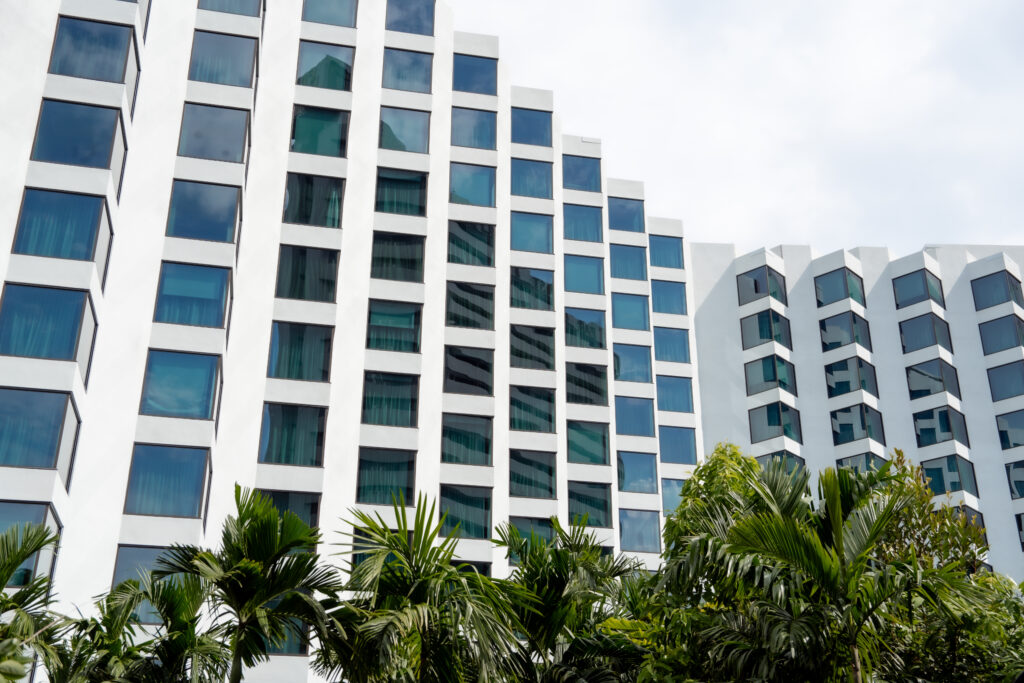
Photo credit: Grand Hyatt Singapore
One way the hotel was committed to doing this was through AI smart systems. “Machine learning, data collection and analysing the data is an important process for any sustainability journey,” says Clyric. “Therefore, we had to implement a series of systems and upgrade some older systems to include an element of data analysis in order for us to determine where our gaps were and to find solutions to close those gaps.”
New systems for less energy wastage
In order to reach their sustainability goals, the hotel made some major investments in backend systems, particularly the mechanical, electrical and plumbing (MEP) system. “Our previous MEP systems were more than 15 years old,” says Clyric. “The system back then was not smart, and it only operated as an on/off system while collecting basic data.” This means the previous system was unable to analyse the data to optimise efficiency and could not indicate where the hotel was wasting energy. The new MEP system features smart systems and metres and allows the hotel to slowly transition out of using diesel and gas with an aim to move to electric and reduce Scope 2 emissions (indirect greenhouse gas). “By going diesel-free we will reduce the reliance on offsets which is expensive,” says Clyric. “The current system allows us to operate dynamically for all types of hotel occupancy. The previous system required us to turn on all systems even when we are operating at low occupancy.” This was something the hotel noticed especially towards the end of the pandemic.
Another area of focus was the guest experience and its collaterals. The hotel partnered with Diversey to recycle used bar soaps for underprivileged communities and also print all hotel materials on Forest Stewardship Council paper. Check-in is paperless and entry to rooms is through the World of Hyatt mobile app.
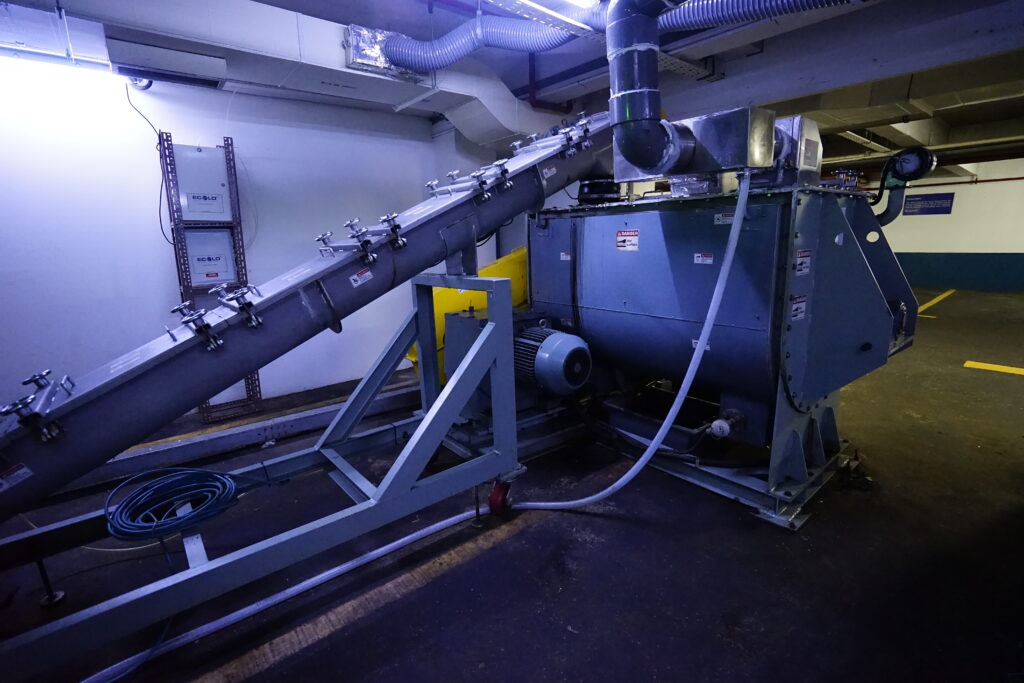
WasteMaster 1000 that converts excess food into odourless, pathogen-free material | Photo Credit: Grand Hyatt Singapore
Waste not want not
A main focus for Grand Hyatt in its sustainability initiatives has also been to focus on food waste. Studies have suggested that hotels waste around 35% of food purchased and this was a key area for the hotel.
They did so by using LightBlue Consulting to track and reduce food waste and its associated costs. They are also the first hotel in Singapore to implement a cloud-based tracking system from Wisefins to measure the carbon footprint of every dish in their restaurants. As Sebastian Kern, Executive Assistant Manager – Food & Beverage explains, “Insights from LightBlue helped the Culinary and F&B Teams refine buffet operations and portioning strategies, resulting in leaner displays, smarter replenishment cycles and reduced excess. Meanwhile, Wisefins provided a detailed look at the carbon footprint of individual dishes, supporting the transition toward lower-impact ingredients and improved preparation techniques.” Now over 80% of organic vegetables are sourced locally or regionally, and 50% of seafood is certified sustainable. After a six-month period across restaurants’ Pete’s Place and Straits Kitchen, and the central production kitchen, the hotel achieved a 43% reduction in average food waste per guest, diverting over 13 tonnes of food from waste and avoiding more than 34,000 kilograms of CO₂ emissions.
The hotel also introduced a new, fully automated and contactless WasteMaster 1000, which replaced the older facility. The WasteMaster converts excess food into odourless, pathogen-free inert material while retaining up to 95% of its energy and nutrients. This could then be fed to cultivated tilapias at the Metro Farm. From there, waste from the fish would be filtered and used to fertilize crops at the hotel’s rooftop herb garden in a healthy, pesticide-free way. Those greens would then be harvested for use in the hotel. The result is a full-circle, closed-loop system that supports Singapore’s 30-by-30 food resilience goal.
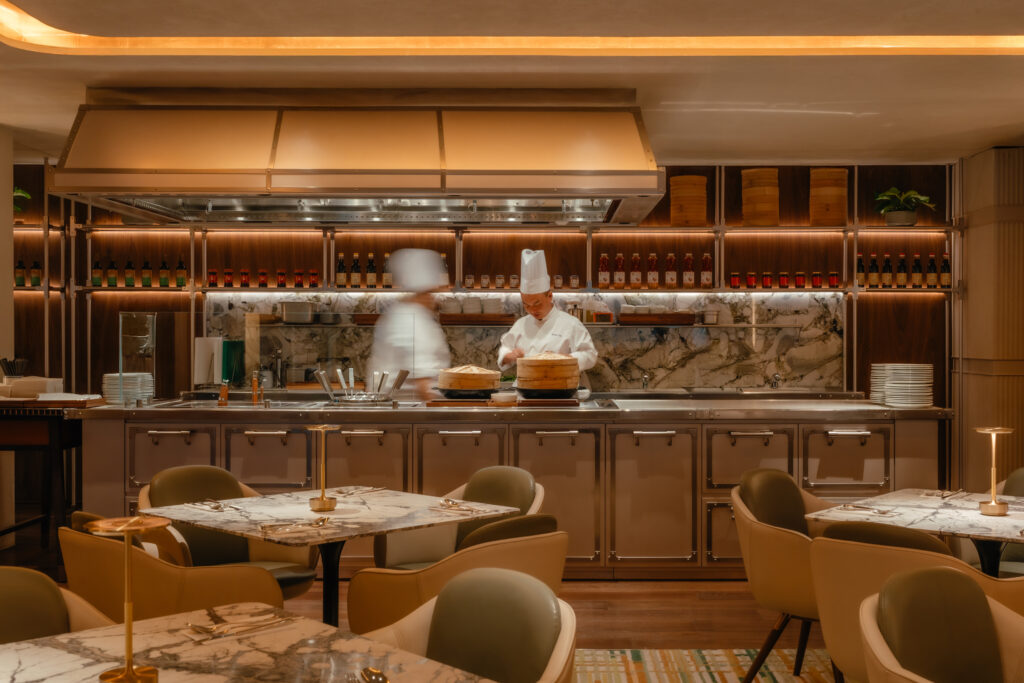
Photo Credit: Grand Hyatt Singapore
And the hotel won’t stop there, as it continues in its effort to be zero waste by 2026. Grand Hyatt has completed its opening this year with the relaunch of the Grand Wing and continues its sustainable efforts with plans to install solar panels and aquaponics on site. So far, there have been tangible benefits from more efficient menus, reduced kitchen waste, better energy usage and ultimately, a more mindful experience for guests.
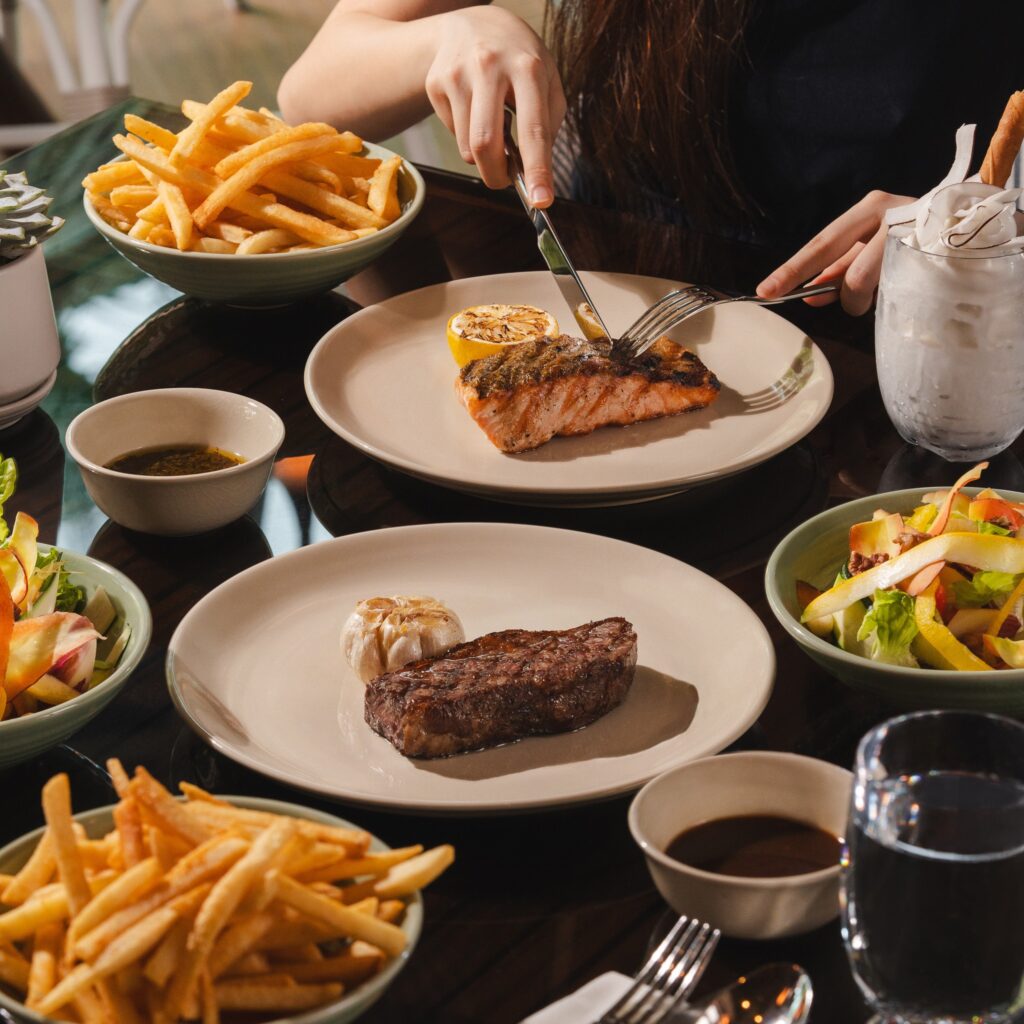
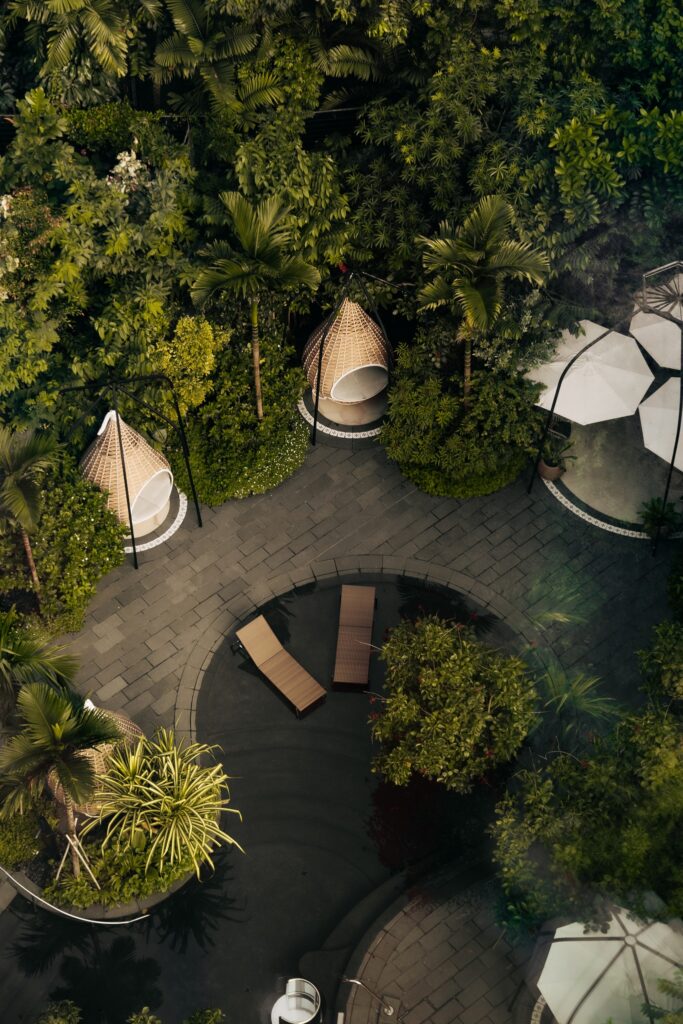
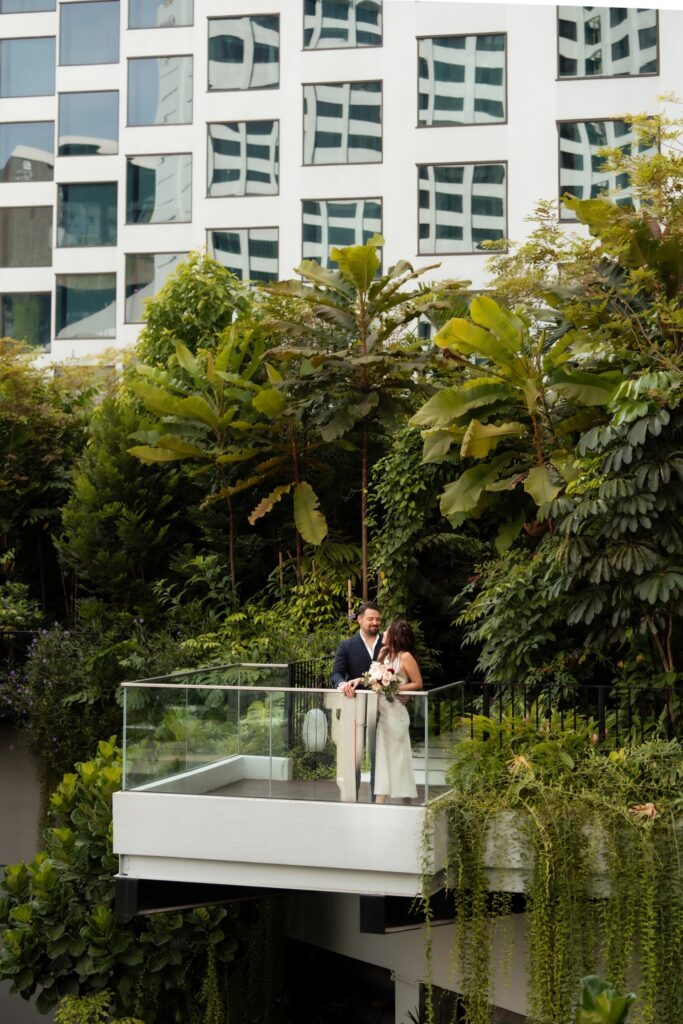
Photo Credit: Grand Hyatt Singapore
Author: Karen Fong
Karen Fong is a Singapore-based writer and editor who has previously spent time in Hong Kong, Shanghai and Canada. She writes parenting, lifestyle and travel content and has worked with publications including The Singapore Women’s Weekly, DestinAsian, Travel+Leisure Southeast Asia and Prestige Hong Kong.



